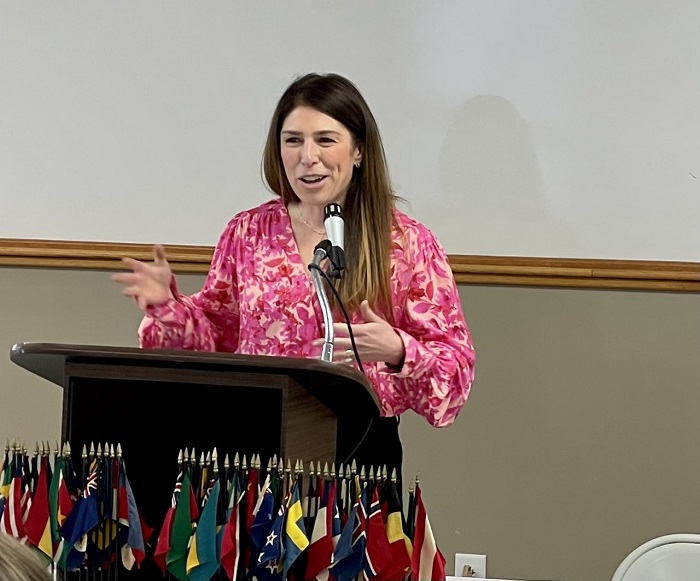
It’s National Parkinson’s Awareness Month and with that in mind, Jenny Mae Blankenberger, though you may remember her as Bingman, says her passion, speech therapy is an important treatment for patients. Scientists believe a lack of dopamine causes Parkinson’s. That deficit is directly related, they say, to a disorder of nerve cells in a specific part of the brain that produces the neurotransmitter. Initially diagnosed in 1817 by James Parkinson and originally called the shaking palsy, Blankenberger says 1 in 100 adults over the age of 60 are diagnosed with Parkinson’s. She says 90% of people with Parkinson’s are at risk for developing a weak voice that can lead to swallowing difficulties.
“Dopamine also helps us to complete automatic tasks. You think about those things that we do that we don’t think about like swinging your arms while walking, blinking, those types of things are all controlled through that neurotransmitter of dopamine and unfortunately that’s what Parkinson’s attacks. And it depletes the dopamine in your brain. They say that by the time you notice Parkinson’s symptoms, up to 80% of your dopamine has been depleted already.”
Tremors, slower movement, rigidity, softer or hoarse voice, trailing off when talking, stuttering, a loss of inflection when speaking or a developed monotone delivery are some of the symptoms. Cognition troubles and using simplified sentences are also difficulties as well as trouble swallowing.
Part of the therapy for those living with Parkinsons includes conducting tasks with determination.
“One of the programs that I specialize in is called Speak Out. It’s through the Parkinson’s Voice Foundation and one of the things they do is they help individuals with Parkinson’s take speech which is typically an automatic task and they make it an intentional task.”
She says without getting overly technical, basically those efforts through therapy create a detour in brain function for that person to help rewire how that person accomplishes tasks.
“Putting on makeup, shaving, learning to play the piano…these are all tasks that we don’t do automatically and so we have to use this different neural network to complete. So we activate this pyramidal system when we use purposeful and intent based tasks.”
Blankenberger says her goal is to not just make a functional, but a meaningful difference for her patients. Helping those affected see a real difference in their quality of life is the ultimate reward. You can learn more about Blankenberger or make contact through her work at Wabash Christian Village and the therapy clinic on Oak Street. Learn more about the program at http://www.parkinsonvoiceproject.org.














